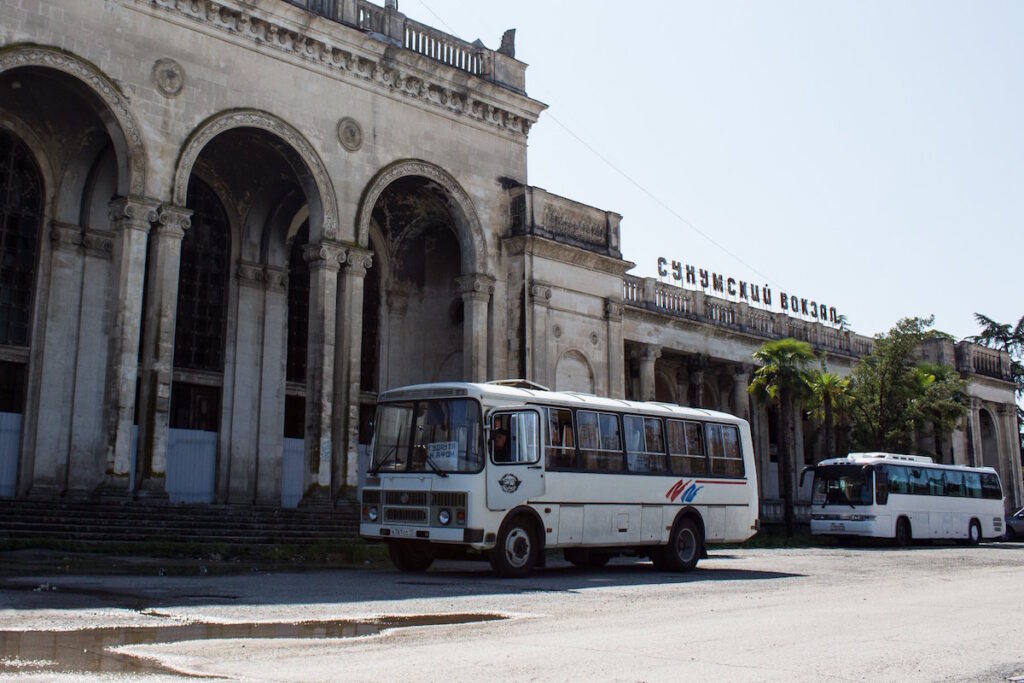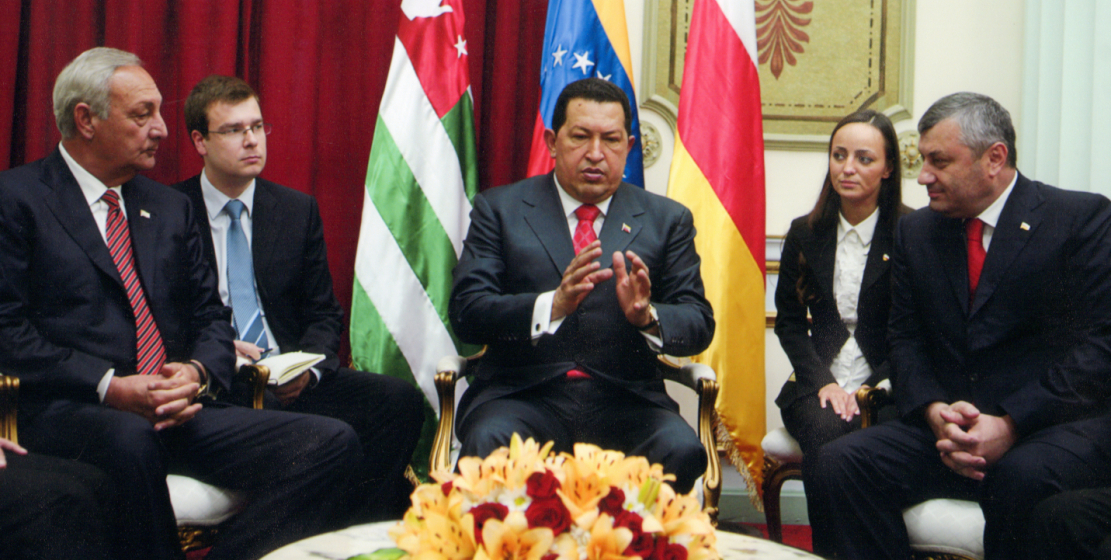Abkhazia and Russia: What’s the way out?
“Abkhazia’s political tradition dictates that when dissatisfied citizens enter the president’s office uninvited, the head of state is considered deposed,” says Inal Khashig, editor of Chegemskaya Pravda and JAMnews in Abkhazia.
“The current situation, where government buildings have fallen into opposition hands amid mass protests, fits this long-established pattern,” he said.
What is happening and why in Abkhazia: Thousands of people took to the streets in Abkhazia on the morning of November 15, demanding the withdrawal of a Russian investment agreement from parliament, which the opposition and much of society view as detrimental to the region and ironically refer to as “privileges for oligarchs.” The protest resulted in the occupation of the presidential administration building and calls for the resignation of President Aslan Bzhaniya, who at that point had refused to step down.
The agreement stipulates that: (1) The agreement grants Russian investors an eight-year exemption from customs duties on imported construction materials and equipment, as well as from property and profit taxes; (2) The value-added tax for investors will be reduced to just 5%, half the standard rate; (3) The Abkhazian government is required to prioritize investors covered by this agreement, listed in a special registry, by granting them preferential access to energy resources and connections to infrastructure and utilities; (4) Investors are allowed to use land allocated by the Abkhazian government as collateral for bank loans. Consequently, if an investor defaults, the bank could claim the land.
Opponents of the agreement argue that it will deal a severe blow to local businesses, which cannot compete with Russian companies under such conditions. Moreover, they believe the agreement poses a threat to the security of the republic.
De jure, Aslan Bzhania remains president of Abkhazia. On the evening of November 14, he appeared ready to resign, reportedly negotiating through intermediaries with the opposition over who would serve as acting head of state. But he later reversed course.
Formally, the talks broke down over the structure of interim governance. Bzhania proposed Vice President Badr Gunba as acting president, with the opposition selecting a candidate for prime minister.
The opposition, however, demanded the resignation of not only Bzhania but also Gunba and Prime Minister Alexander Ankvab. This would make Parliament Speaker Lasha Ashuba the acting president according to the constitutional hierarchy.
Observers believe Bzhania may have used the negotiations to buy time—time to recover, consult with Moscow, and rally support from his security forces.
Bzhania clearly had no intention of stepping down. By nightfall, speaking from the steps of the state security building, he announced his decision to remain in power, addressing his security personnel directly.
Aslan Bzhania has decided to stay in power. However, after his brief speech, the security forces, who were expected to go in and “remove” the opposition from the presidential palace, dispersed and went home. Moscow, which he had hoped would intervene, hinted that it would not involve itself in Abkhazia’s internal affairs.
De facto, power now rests with the opposition, which has already begun setting up in the government complex.
De jure, Bzhania, still officially president, had to retreat to his ancestral village of Tamish for the night.
Regardless of how the situation resolves, Abkhazia is headed for new presidential elections. These were already scheduled for mid-February 2025 before the crisis, and whether they are held a month earlier or later makes little difference.
The fact remains that the next president of Abkhazia will not be Aslan Bzhania.
Another issue is that the new Abkhaz leader will inherit a long list of problems, including the decision regarding the controversial Russia-Abkhazia investment agreement that led to Bzhania’s downfall.
Finding a new approach to relations with Moscow will be one of the top priorities for the next administration. Its formula is simple: maintain friendly ties with Russia while safeguarding its sovereignty.
However, as long as half of the country’s budget is subsidized by Moscow, achieving this balance will be extremely difficult.
In essence, despite another change in leadership, the burden of problems that has driven discontented masses to the presidential palace remains unchanged.
This means that the next president will also face the looming threat of early removal from office.


